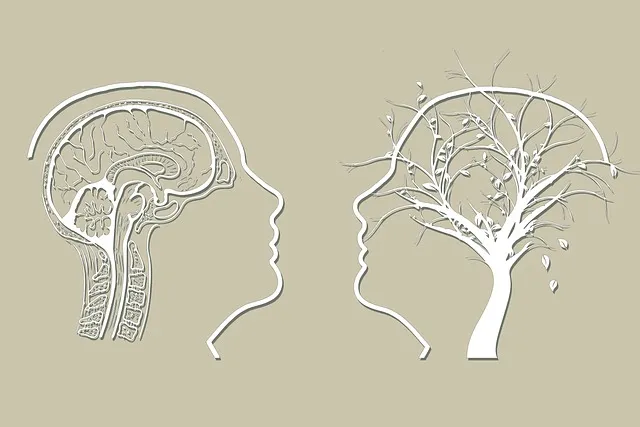Lafayette Kaiser Permanente Psychiatry employs a robust evaluation strategy for their mental wellness programs using both quantitative and qualitative methods. They measure key performance indicators (KPIs) like reduced anxiety (GAD-7) and improved positive thinking to assess program impact. Surveys and Mental Wellness Journaling Exercises gather insights on patient satisfaction, experience, and personal growth, guiding targeted improvements to services like podcasts and trauma support, enhancing overall mental wellness outcomes for diverse communities.
Evaluating mental wellness programs is crucial for assessing their effectiveness and ensuring they meet the needs of the community. This article explores diverse evaluation methods employed by Lafayette Kaiser Permanente Psychiatry, a pioneering organization in mental health care. We delve into quantifiable approaches, such as identifying Key Performance Indicators (KPIs) and utilizing data analytics to measure program success. Additionally, we uncover qualitative insights through patient narratives, clinical observations, and feedback mechanisms, offering a holistic view of the program’s impact. By integrating community engagement and collaboration, Lafayette Kaiser Permanente Psychiatry expands access to mental wellness services, fostering a more inclusive and supportive environment.
- Assessing Program Impact: Metrics and Surveys for Lafayette Kaiser Permanente Psychiatry
- – Identifying key performance indicators (KPIs) for mental wellness programs
- – Designing and administering patient satisfaction surveys
Assessing Program Impact: Metrics and Surveys for Lafayette Kaiser Permanente Psychiatry

Evaluating the impact of mental wellness programs is crucial for understanding their effectiveness and making informed improvements. For Lafayette Kaiser Permanente Psychiatry, a multifaceted approach using both quantitative and qualitative metrics offers a comprehensive view of program success. Surveys distributed to participants can gauge satisfaction levels, track symptom improvements, and collect feedback on specific aspects like Conflict Resolution Techniques and Stress Reduction Methods. These surveys provide valuable insights into the perceived benefits and areas for enhancement.
In conjunction with surveys, Mental Wellness Journaling Exercises can offer deeper qualitative data. Encouraging participants to reflect on their experiences allows them to articulate personal growth, challenges overcome, and the overall impact of the program. This method enriches the evaluation by capturing individual stories and unique perspectives, complementing the broader statistical analysis derived from metrics.
– Identifying key performance indicators (KPIs) for mental wellness programs

Evaluating mental wellness programs requires a strategic approach to measure their effectiveness and impact on individuals’ well-being. Key Performance Indicators (KPIs) serve as vital metrics to track progress and guide improvements. For Lafayette Kaiser Permanente psychiatry services, KPIs could include reduction in anxiety levels among patients, as measured by standardized questionnaires like the GAD-7 (Generalized Anxiety Disorder 7-Item Scale). Another important indicator might be the percentage of individuals who report improved positive thinking and emotional resilience over time.
Cultural sensitivity in mental healthcare practice is also crucial, ensuring that programs cater to diverse populations with tailored interventions. This could translate into KPIs related to patient satisfaction and retention rates across different cultural backgrounds. By setting these measurable goals, Lafayette Kaiser Permanente can systematically assess and optimize their mental wellness initiatives, ultimately enhancing the overall well-being of the community they serve.
– Designing and administering patient satisfaction surveys

Evaluating patient satisfaction with mental wellness programs is an essential aspect of ensuring high-quality care at Lafayette Kaiser Permanente psychiatry. Designing and administering patient satisfaction surveys involves careful consideration to capture genuine feedback. These surveys should be comprehensive, covering various dimensions of the patient experience, from the accessibility and timeliness of services to the competence and empathy of healthcare providers.
By incorporating open-ended questions and structured ratings, mental health professionals can gather both qualitative and quantitative data. This dual approach allows for a nuanced understanding of patients’ perceptions, identifying areas of excellence and potential challenges within the program. For instance, the Mental Wellness Podcast Series Production might be enhanced based on patient feedback, ensuring that content resonates with the target audience. Additionally, integrating Trauma Support Services or refining risk assessment protocols can be guided by these surveys, ultimately improving overall mental wellness outcomes.
Evaluating mental wellness programs, such as those offered by Lafayette Kaiser Permanente Psychiatry, is crucial for understanding their impact and identifying areas for improvement. By utilizing a combination of key performance indicators (KPIs) and patient satisfaction surveys, healthcare providers can gain valuable insights into program effectiveness. KPIs offer quantitative data on specific aspects like service utilization and clinical outcomes, while surveys provide qualitative feedback from patients, enriching the evaluation process. Through these methods, Lafayette Kaiser Permanente Psychiatry can ensure its mental wellness programs meet the needs of its community, foster positive mental health outcomes, and continuously enhance patient experiences.



